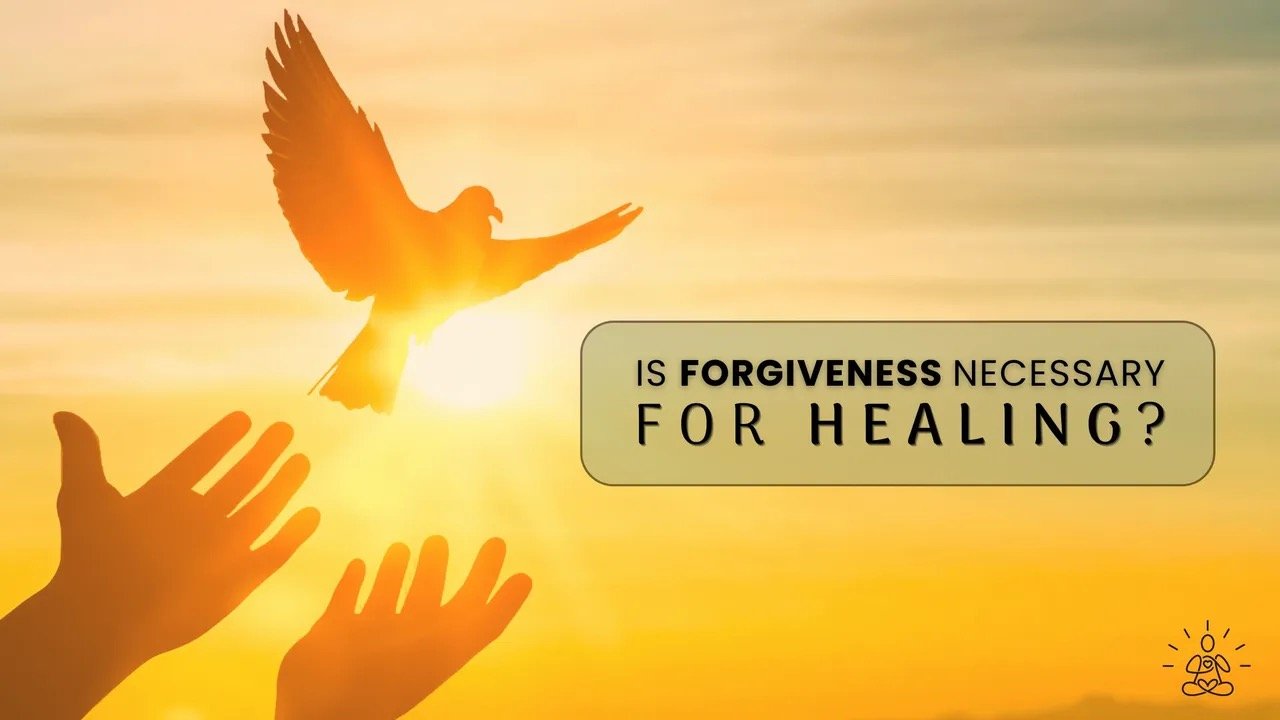Is Forgiveness Necessary for Healing?
Forgiveness is often held up as a key to emotional freedom, a pathway to letting go of anger and resentment. But when you’ve been deeply hurt, the idea of forgiveness can feel overwhelming or even impossible. So, is it truly necessary to forgive in order to heal? Let’s explore this complex and deeply personal topic.
What Forgiveness Is—and What It Isn’t
First, it’s important to clarify what forgiveness means. Forgiveness doesn’t mean condoning harmful behavior or forgetting the pain someone caused. It’s not about pretending everything is fine or forcing yourself to reconcile with someone who hurt you. Forgiveness, at its core, is about releasing the emotional hold that the past has over you. It’s a decision to no longer carry the heavy burden of resentment, which can sometimes harm you more than the original act itself.
Forgiveness is also about reclaiming your sense of control. When you’ve been hurt, it’s common to feel powerless in the face of what happened. Choosing whether or not to forgive is a way to reassert that control. It’s your decision, and only you can decide if or when it’s the right step for you. This ensures that forgiveness doesn’t feel like an ultimatum, but rather a choice that empowers you on your healing journey.
The Case for Forgiveness
Research has shown that forgiveness can have profound benefits for mental health and well-being. For example, studies indicate that forgiveness can reduce symptoms of anxiety, depression, and chronic stress. It’s also been linked to improved heart health and lower blood pressure. On an emotional level, forgiveness can help you let go of the bitterness that keeps you tethered to the past, making space for more pleasant feelings.
For many, forgiveness is an act of self-kindness. It’s less about the other person and more about prioritizing your peace of mind. When you forgive, you’re giving yourself permission to move forward rather than staying stuck in a cycle of pain and anger.
However, healing doesn’t solely depend on forgiveness. Alternative approaches can also lead to meaningful recovery and emotional well-being. Healing is a multifaceted process, and forgiveness is just one of many paths.
When Forgiveness Feels Impossible
There are situations where forgiveness can feel out of reach, particularly in cases of severe trauma or ongoing harm. In these instances, expecting forgiveness can feel like an additional layer of pressure on someone who is already struggling to heal.
The good news is that healing doesn’t always require immediate or full forgiveness. For some, healing begins with acknowledging the pain and validating their feelings. Setting boundaries, seeking support, and focusing on self-care can be crucial steps in the healing process, even if forgiveness isn’t part of the equation right away.
Alternative Paths to Healing
If forgiveness doesn’t feel accessible or right for you, there are other ways to heal:
Acceptance: Fully accepting reality for what it is, without resisting, avoiding, or wishing it were different—even if it’s painful or unfair. This doesn’t mean you agree with what happened, but rather that you stop fighting against it emotionally. Instead, you acknowledge that it did happen, and choose not to let it define your future. This can reduce suffering and help you focus on what you can control.
Boundaries: Protecting yourself from further harm can create the safety you need to begin moving forward. This might mean limiting or cutting off contact, setting clear expectations for future interactions, or reinforcing emotional boundaries to prevent continued hurt. Boundaries allow you to prioritize your well-being without needing to extend forgiveness.
Self-Compassion: Being kind to yourself as you process your emotions can be just as powerful as forgiving someone else. This means allowing yourself to feel without judgment, recognizing that healing takes time, and treating yourself with the same patience and understanding you would offer a loved one. Self-compassion shifts the focus from the person who hurt you to your own emotional needs.
Therapeutic Support: Working with a therapist can help you process your pain and explore whether forgiveness is a step you want to take. Therapy provides a structured space to untangle complex emotions, validate your experience, and develop coping strategies that support healing—whether or not forgiveness is part of your journey.
Forgiveness as a Choice, Not an Obligation
At the heart of healing is the ability to reclaim your sense of peace, whether that includes forgiveness or not. Forgiveness is a deeply personal choice—one that shouldn’t be rushed or forced. If and when you decide to forgive, let it come from a place of readiness and empowerment, not guilt or external pressure.
Think of forgiveness as setting down a heavy load—not to pretend the load was never there, but to free yourself from its weight. Only you can determine when that moment feels right. You’re in control of that decision, and you can carry it for as long as you need until it no longer serves you.
Your Healing, Your Terms
Healing is a journey shaped by your own experiences, emotions, and choices. Whether you are working through deep wounds or processing past hurts, your path is yours to define. If you're struggling with resentment, grief, or emotional pain, therapy can provide a safe and affirming space to explore your feelings without judgment.
If you're ready to take that step, I invite you to reach out. You don’t have to navigate this alone. Contact me at Graceful Mind Therapy.
No matter where you are in your healing process, remember that your peace matters. You deserve to move forward in a way that honors your needs, your boundaries, and your well-being—on your own terms.
by Maria Perdomo-Torres, LCSW-S, MHA, CFSW



